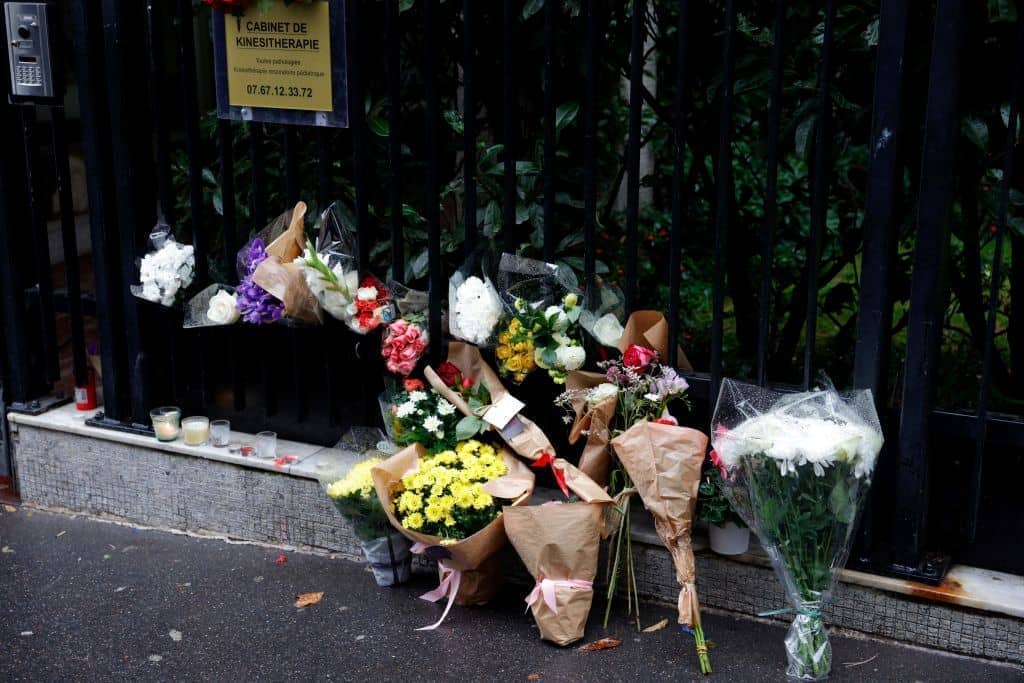France is in shock after the brutal killing of a 12-year-old girl in Paris last Friday. The details of how young Lola met her death are too gruesome to describe, but the news that a 24-year-old woman has been charged with the crime has deepened the disbelief. The fact that the woman is an Algerian national, living in France illegally after her student visa expired, has caused uproar.
While Emmanuel Macron received Lola’s parents at the l’Élysée on Tuesday, his political opponents blamed his government for the death of the child. ‘Lola lost her life because you did not proceed with the expulsion of this national,’ said centre-right Republican MP Eric Pauget. In the National Assembly on Tuesday Marine Le Pen addressed a question to the Prime Minister, Elisabeth Borne: ‘The suspect of this barbaric act should not have been in France. What are you waiting for to be able to act so that this uncontrolled illegal immigration is finally stopped?’
An editorial in Wednesday’s Le Figaro was headlined ‘Guilty Silence’ stated that only 6 per cent of foreigners living in France illegally were expelled in 2021 (down from 13 per cent in 2017), and said the government must get a grip on the situation to ensure there are no more Lolas. On Wednesday afternoon government spokesman Olivier Veran conceded that when it came to expelling illegal residents ‘we obviously have to do better’.
For years the ruling class in France has rejected any link between immigration and crime, but slowly the omerta is cracking. Last week a book was published by Didier Lallement, until July the chief of police in Paris. Entitled The Necessary Order, the book is a damning indictment of the lawlessness endemic in the capital, where ‘one out of every two crimes are committed by a foreigner, often in an irregular situation’. This statistic was referenced by Le Pen in her question to Elisabeth Borne.
For years the ruling class in France has rejected any link between immigration and crime, but slowly the omerta is cracking
Paris, or at least some of its suburbs, have long had a reputation for disorder, what the French describe as the ‘lost territories of the Republic’. So too has Marseille, where this year 28 people have been shot dead in drug-related killings, usually by men wielding assault rifles. Fifty-five percent of people arrested in Marseille are foreign, according to one government minister.
In recent years, however, the crime and violence has spread to other towns and cities. Last month a global study ranked France as more dangerous than Mexico in terms of visitor safety, and one city was singled out for its chaos – Nantes. In 2004 Time Magazine described Nantes as the ‘most liveable city in France’ but it’s now considered more violent than Bogota in Colombia.
With good reason. A 47-year-old woman was stabbed to death on Sunday in Nantes, and last month a woman was raped in the street. The two men arrested by police in connection with the latter crime are Sudanese refugees.
In 2016 there were 283 cases of reported rape, assault and harassment in Nantes while in 2021 there were 562, the period when its Socialist mayor took pride in welcoming migrants into the city. Increasingly, women in Nantes are scared to go out after dark and perhaps they’re wise, given the response of mayor Johanna Rolland to last month’s rape. The police, she said, ‘will never be able to prevent a street rape, however terrible…because it is not their job’.
According to official figures released this month, 41 per cent of people arrested this year in Nantes are foreign. This is a statistic that not even the Socialist city council can duck. One of the deputy mayors, Pascal Bolo, admitted recently: ‘I am not saying that immigration equals delinquency, but too many of these young people are behind the attacks.’
Violent crime and sexual assaults are also rising fast in Paris, up 30 per cent this year. There are some arrondissements where life is still rosy, but these districts tend to be where the political, cultural and media elite congregate. Elsewhere, life in the capital can be wretched, usually in the working-class districts like those where Lola lived.
Didier Lallement’s prognosis is bleak. Unless France’s uncontrolled immigration is brought under control, he fears the Republic will before long experience a confrontation that will be ‘intense and destructive’.
A new immigration bill will be tabled in January, one which the Interior Minister, Gérald Darmanin, promises will address the crisis. But his tough-talking was undermined last month by his president, who said that the best solution to the migrant crisis is to send them to the countryside to repopulate the ageing villages and towns.
Marine Le Pen retorted that the only place they should be sent is ‘back home’. Secretly, however, she’ll be satisfied with Macron’s unwillingness to confront France’s chaotic immigration. She’s confident that given time Giorgia Meloni won’t be the only right-wing blonde in power.







Comments